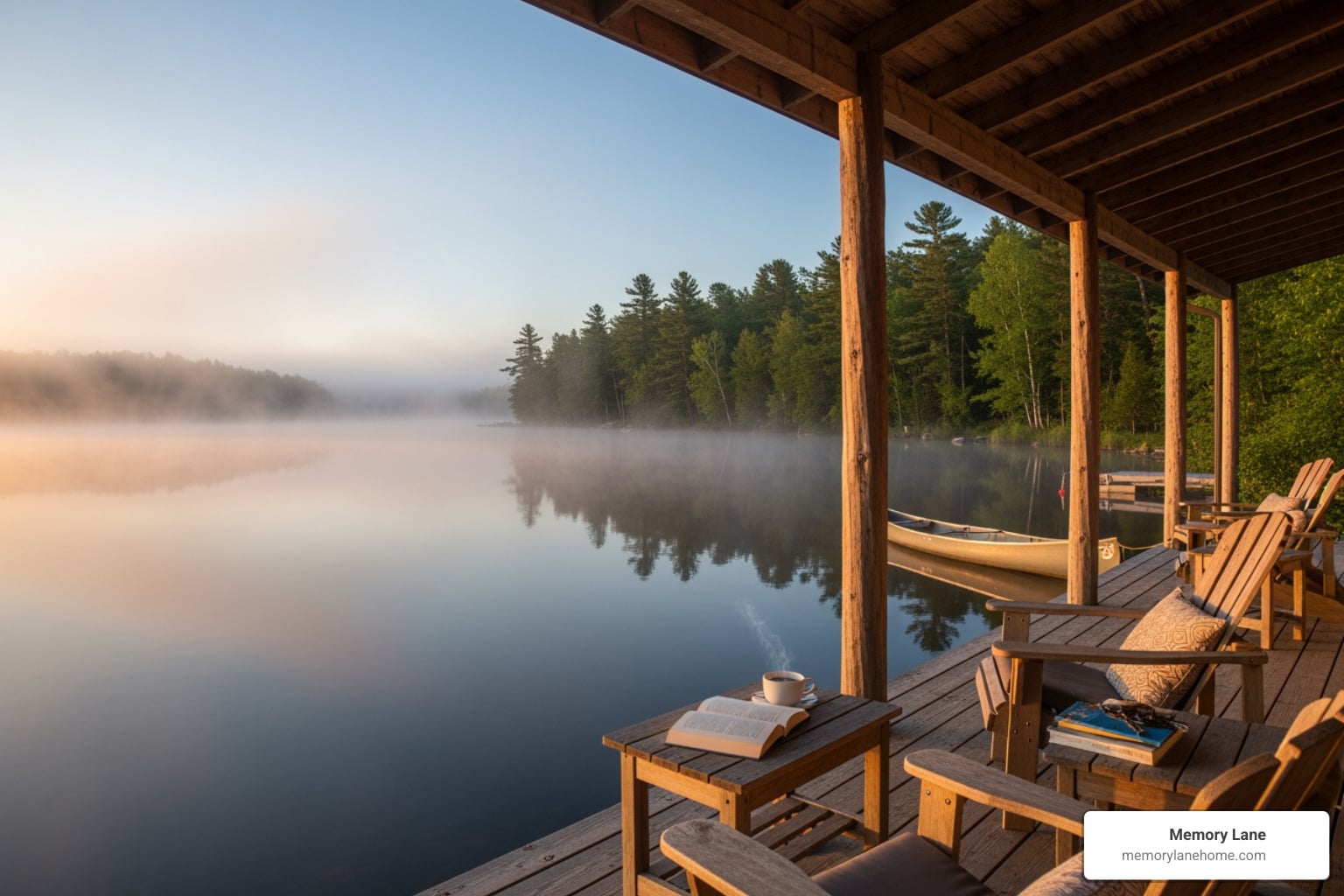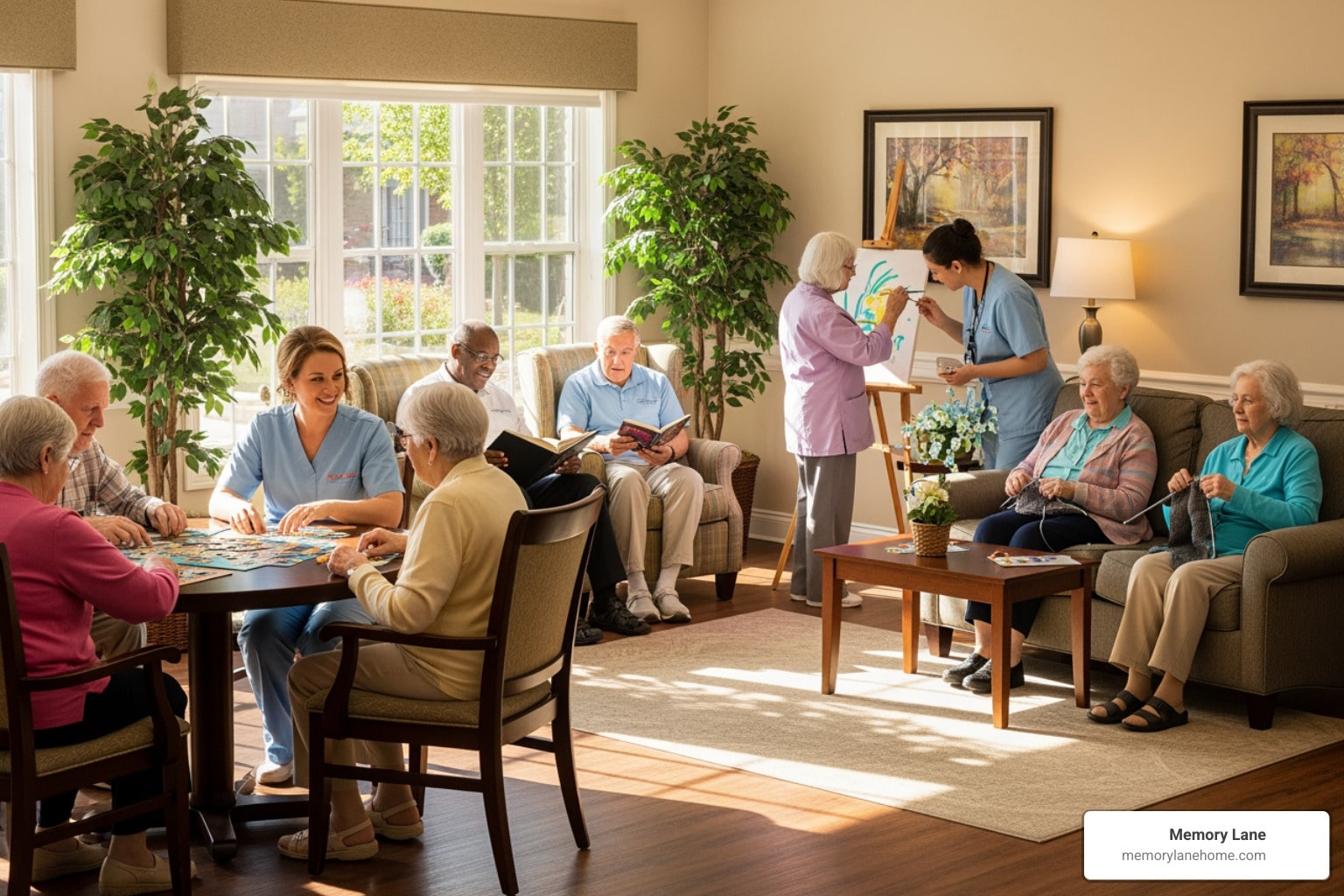Your guide to assisted living Michigan: explore costs, services, financial aid, and top communities for senior care.
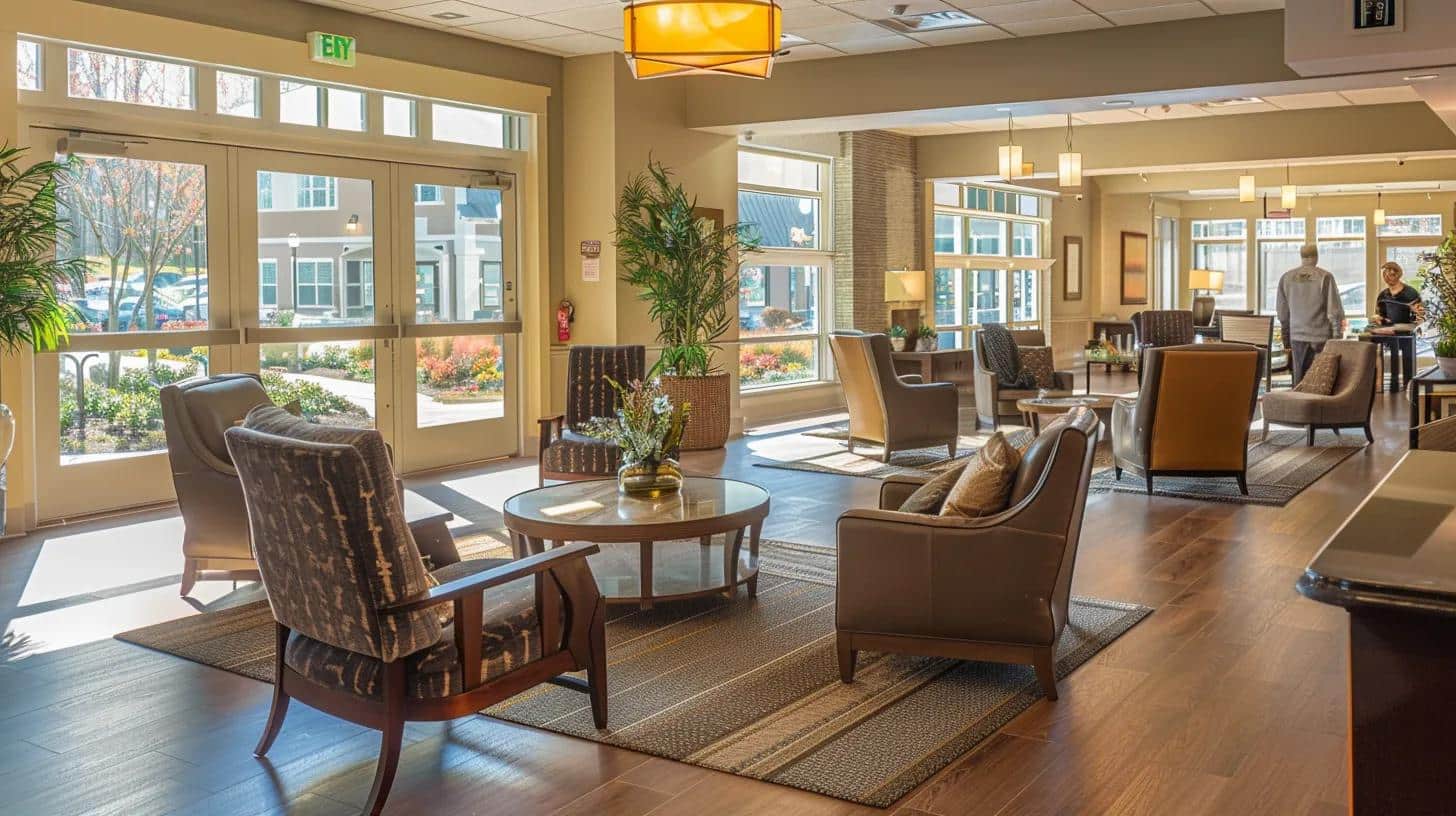
Local Senior Care Homes Near Me: Your Search Simplified
Local Senior Care Homes Near Me: Your Search Simplified
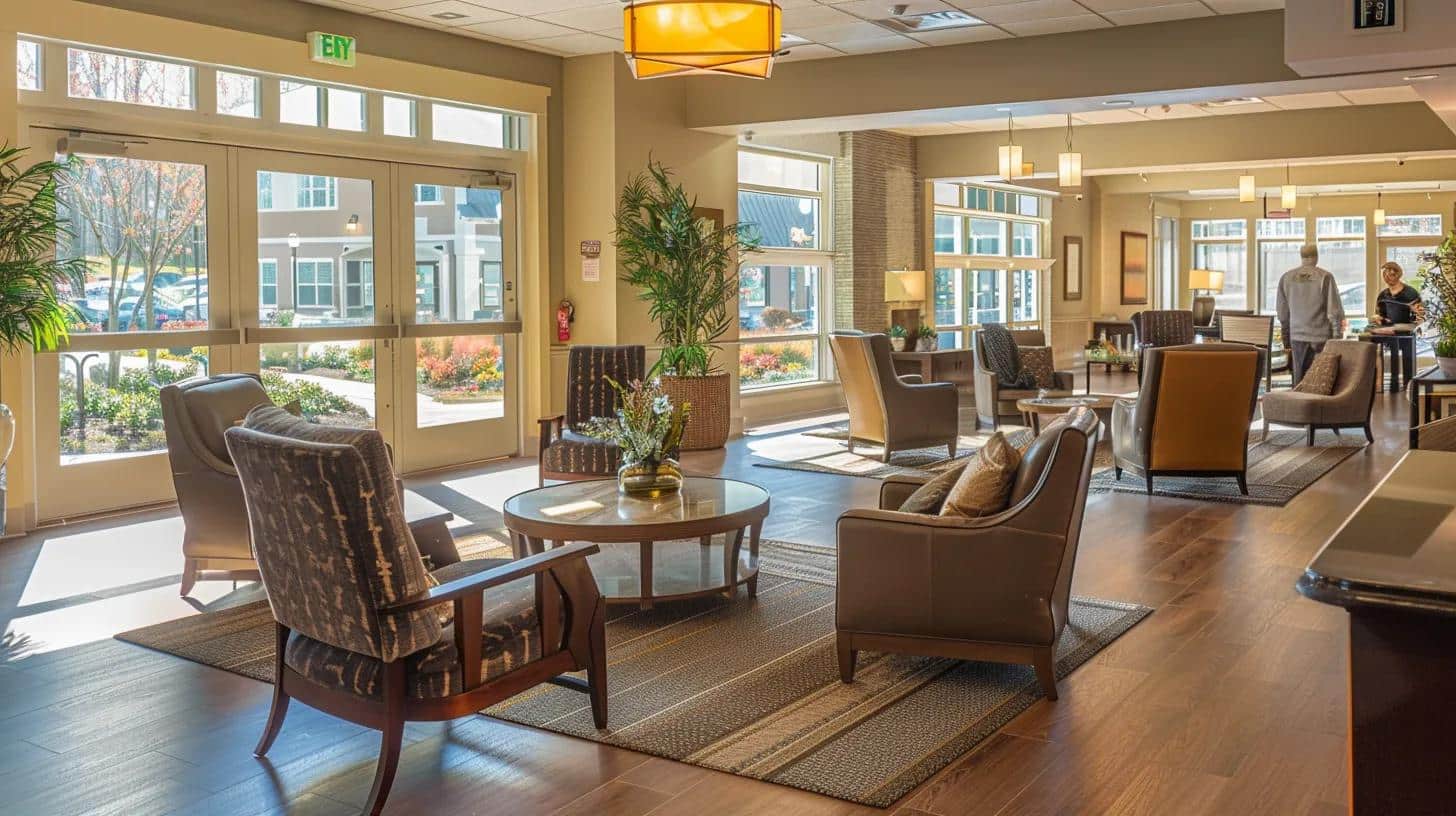
Find Senior Living Near You
In today’s evolving landscape of senior care, selecting the right living arrangement is a critical decision that impacts the lives of seniors and the peace of mind of their families. Many families grapple with questions about the ideal level of support, social interaction, and cost when researching an assisted living facility or memory care home. This guide provides trusted information about senior living options, especially for residents with dementia and cognitive challenges. Memory Lane, operating six-bedroom ranch-style homes in Ypsilanti, Michigan, exemplifies compassionate, personalized care with a low caregiver-to-resident ratio and tailored programming.
The guide walks readers through essential steps for finding a senior care home. It covers how to define an ideal living arrangement by assessing care requirements, lifestyle preferences, and financial constraints. It also outlines the different types of senior care homes—from independent living communities to specialized memory care units—and explains how to evaluate their suitability. Additionally, the article covers methods for searching for facilities, organizing visits, and addressing legal aspects of senior care agreements. Transitioning to the main discussion, the following sections detail each critical area of the process.
Table Of Contents:
- Find Senior Living Near You
- Define Your Ideal Senior Living Arrangement
- Identify Types of Senior Care Homes in Your Vicinity
- Search for Senior Care Homes Near Me
- Assess a Senior Care Home’s Suitability
- Inquire Thoroughly at Prospective Senior Care Homes Near Me
- Plan Financially for Senior Living Options Close By
- Select the Best Senior Care Home Near Your Location
- Organize the Transition to a New Senior Residence
- Address Legal Aspects of Senior Care Home Agreements
- Obtain Support Throughout Your Senior Living Search
- Final Thoughts
- Frequently Asked Questions
Define Your Ideal Senior Living Arrangement
When considering senior living options, the first step is to define the ideal arrangement that meets the needs of the senior. This begins with evaluating both current and future care requirements and includes a review of lifestyle, budget, and personal preferences.
Assess Current and Future Care Requirements
Understanding the necessary medical, personal, and social support services is the foundation of a successful care plan. Families should review the senior’s daily routines and existing health issues, particularly cognitive concerns like dementia or Alzheimer’s that may require specialized care. It is important to factor in future needs such as additional therapies, medical interventions, or adjustments in personal care routines. Elements like bathing assistance, medication management, and meal preparation should be considered to create a roadmap for both short-term and long-term care.
Determine Preferred Lifestyle and Social Activities
A well-suited senior living arrangement enhances quality of life beyond basic care. Many seniors value community interaction, hobbies, and activities that support their mental and emotional health. When evaluating facilities, inquire about the availability of extracurricular programs, social events, and community involvement opportunities. Understanding the senior’s interests—be it art, music, or gentle exercise—can help in choosing a facility that offers engaging recreational activities and helps maintain cognitive function.
Consider Location Preferences for Family and Amenities
Geography is a key factor when choosing a senior care home. Families often prefer facilities near their own home to allow for regular visits and ongoing support. In addition to proximity, consider local amenities such as hospitals, public transportation, and community centers. A good senior care home should be well-connected to essential services and offer a safe, community-oriented environment.
Establish Your Budget for Senior Living Expenses
Financial planning is crucial when choosing a care home. Costs vary widely depending on the level of service, amenities, and location. It is important to understand all expenses, including monthly fees, one-time move-in costs, and additional charges for specialized services. Families should create a realistic budget that covers foreseeable expenses as well as unexpected costs. Reviewing available insurance options such as Medicaid, Medicare, or long-term care insurance can help manage these expenses and ensure that the financial plan aligns with the senior’s needs.
Identify Types of Senior Care Homes in Your Vicinity
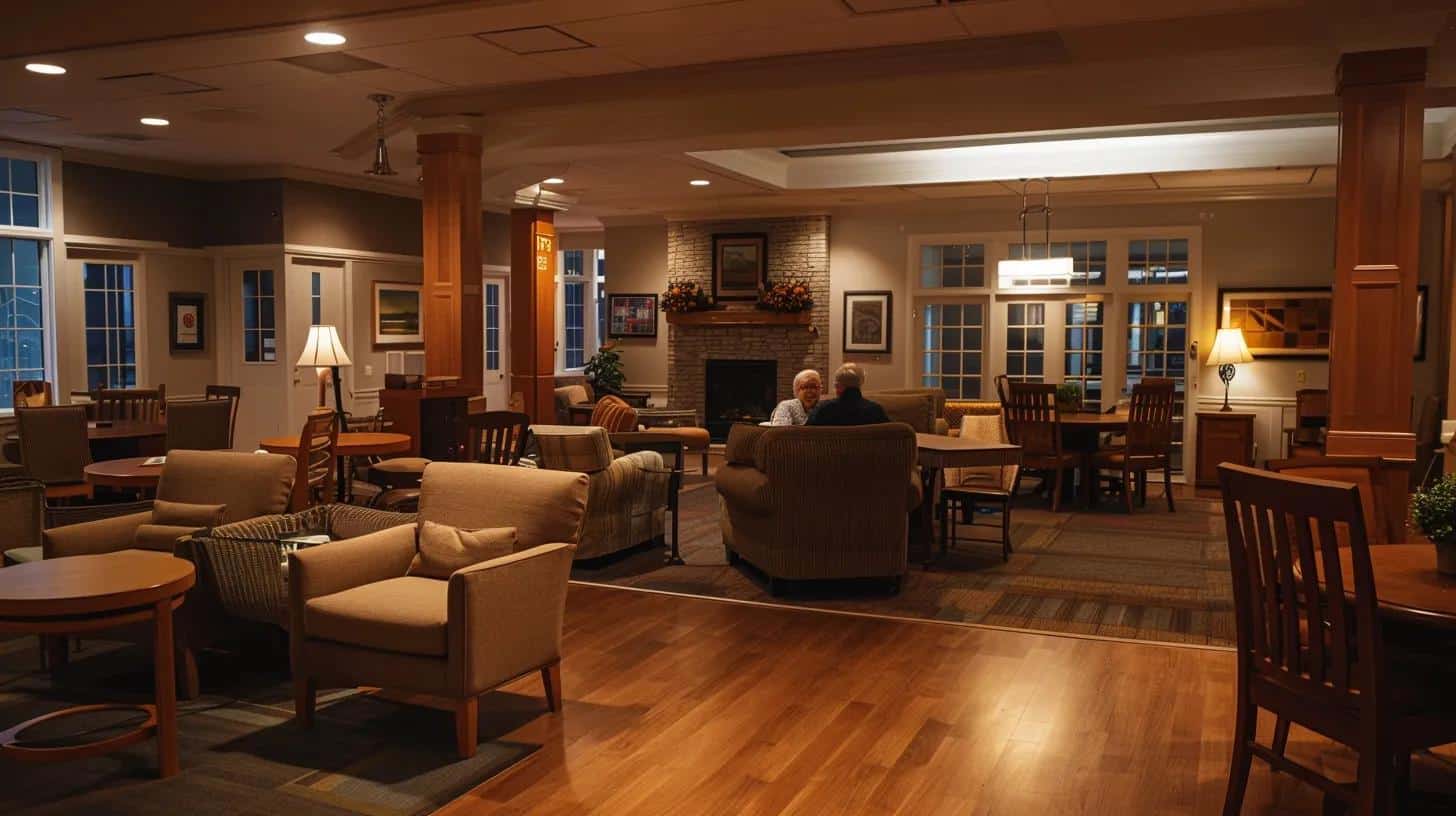
After defining the ideal requirements, the next step is to explore regional options. Senior care homes offer various blends of independence, support, and social interaction. Understanding the differences can help families select a setting that best suits the senior’s current and future needs.
Independent Living Communities for Active Seniors
Independent living communities are designed for seniors who remain self-sufficient but appreciate the convenience of communal living. These facilities provide amenities such as fitness centers, dining halls, and social events while maintaining a maintenance-free lifestyle. Though healthcare services may be limited, many communities include transportation and housekeeping services. This option is ideal for seniors wishing to maintain independence within a supportive, structured community.
Assisted Living Facilities Offering Daily Support
Assisted living facilities are intended for seniors who need help with daily activities such as dressing, bathing, medication administration, and meal preparation. They provide a balance between independence and assistance, with trained staff available around the clock. Structured routines and scheduled social activities support both physical and mental well-being, making this option suitable for those with minor cognitive or physical limitations.
Nursing Homes for Comprehensive Medical Care
Nursing homes cater to seniors requiring extensive medical care, whether for chronic conditions or recovery after major health events. Managed by medical professionals, these facilities offer on-site clinics, emergency response systems, and specialized rehabilitation units. Families considering this option should review licensing, inspection records, and staff qualifications to ensure high standards of continuous medical care.
Memory Care Units for Specialized Dementia Support
Memory care units are specifically designed for seniors with dementia or Alzheimer’s disease. These facilities employ enhanced security measures and structured routines to reduce confusion and agitation. Therapeutic interventions such as reminiscence and music therapy help support cognitive function. With a higher staff-to-resident ratio, memory care units provide the focused attention needed for residents dealing with memory challenges.
Options for Continuing Care Retirement Communities
Continuing Care Retirement Communities (CCRCs) offer a continuum of care from independent living to assisted living and nursing home-level services—all within one community. This model allows senior residents to transition between different care levels without relocating, helping maintain relationships and continuity. CCRCs provide on-site medical support and adaptable lifestyle options, offering peace of mind for both seniors and their families.
Search for Senior Care Homes Near Me
After determining the preferred care requirements and suitable care types, the next step is to search for senior care homes in the area. This search is best conducted using a combination of digital resources, recommendations, and community insights.
Utilize Online Directories to Locate Nearby Senior Housing
Online directories and search engines are valuable tools for finding local senior care homes. Many sites list comprehensive details such as services, pricing, and resident reviews. Filters by location, care type, and budget help narrow the results. Virtual tours often offer an initial sense of the environment before arranging an in-person visit.
Seek Recommendations From Healthcare Providers
Primary care physicians, geriatric specialists, and hospital discharge planners frequently have up-to-date information on local senior care homes. Their recommendations can simplify decision making and ensure that the selected facility maintains high-quality, reliable care with appropriate staffing.
Consult Local Agencies on Aging for Guidance
Local agencies on aging provide detailed guides and resources about community care options. These agencies offer impartial information on facility quality, financial assistance programs, and regulatory compliance, complementing the advice provided by healthcare professionals.
Attend Open Houses at Residential Care Homes for Seniors
Many senior care homes hold open house events where families can observe the environment firsthand. These visits allow for interaction with staff, observation of daily routines, and direct assessment of the care home’s quality. Preparing a list of questions prior to the visit helps gather key details during the open house.
Connect With Community Groups for Local Insights
Local community groups and online forums are excellent sources of practical advice. Members often share personal experiences about various facilities, providing insights that may not be evident from online directories. Engaging with these groups helps build a comprehensive understanding of the pros and cons of each facility.
Assess a Senior Care Home’s Suitability

Evaluating each senior care home in person is critical to ensure it meets the senior’s needs. A thorough assessment during a site visit can help distinguish between a positive and suboptimal experience.
Tour Potential Senior Care Homes in Your Chosen Area
An in-person tour is the best way to gauge the atmosphere and operations of a facility. Families should visit during different times of the day to observe daily routines, staff interactions, and overall activity. This helps confirm that the facility meets cleanliness, security, and accessibility standards.
Observe Staff Interactions and Resident Engagement
Pay attention to how staff members interact with residents during tours. Courteous, attentive, and engaged interactions indicate high-quality care. Observing group activities and meal times can reveal how residents are treated and whether they appear content and involved.
Review Available Services and on-Site Conveniences
During a visit, families should review the range of services offered, from dining and housekeeping to medication management and specialized therapies. Inquire about emergency procedures, on-site medical support, and additional amenities such as transportation services. These services are key to meeting both current and future care needs.
Check Licensing and Inspection Reports for Senior Care Facilities
Ensure the facility operates in compliance with standards by reviewing its licensing status and inspection reports. Request recent reports and public records to understand its history of compliance and any corrective actions taken.
Sample the Dining Experience if Permitted
Nutrition is a vital aspect of senior care. Many facilities invite prospective residents to sample a meal during the tour. This offers direct feedback on food quality, portion sizes, and dining ambiance, which contribute to overall resident satisfaction.
Inquire Thoroughly at Prospective Senior Care Homes Near Me
Before making a final decision, it is important to engage in detailed inquiries with potential care homes. Asking the right questions can uncover subtle differences that are critical to the decision.
Ask About Staffing Levels and Team Qualifications
Request detailed information on caregiver-to-resident ratios, staff training, certifications, and turnover rates. A lower ratio and well-trained staff indicate a commitment to personalized care and effective management of complex needs.
Understand the Spectrum of Care Provided
Clarify which services are offered—whether the facility provides basic assisted living, has in-house memory care, nursing, or rehabilitation services. It is important to know if the facility can adapt to shifting health conditions without requiring relocation.
Clarify All Costs, Fees, and Contractual Stipulations
Obtain a comprehensive breakdown of all fees, including monthly rates and any additional charges. Discuss policies regarding fee increases or early termination so there are no financial surprises later.
Inquire About Safety Protocols and Emergency Plans
Confirm the facility’s protocols for emergencies such as fire or medical incidents. Ask how often safety drills are conducted and how the facility updates its emergency procedures to maintain resident safety.
Request Opportunities to Speak With Current Residents
Speaking with current residents and their families can provide valuable firsthand insight. Ask about overall satisfaction, challenges experienced, and the level of attention provided by staff. These testimonials help validate whether the facility meets its advertised standards.
Plan Financially for Senior Living Options Close By

Careful financial planning is essential before moving forward with a senior care home. This process ensures that the facility chosen is both high-quality and economically sustainable.
Calculate the Overall Expense of Different Senior Care Homes
Compile a list of potential costs, including monthly fees, move-in charges, and varying service fees. Use online calculators or consult financial advisors to estimate total expenses for one to five years. This detailed budgeting helps match financial ability with care needs.
Investigate Insurance Benefits for Senior Care
Explore which facilities accept Medicare, Medicaid, or long-term care insurance. Consult with insurance providers to clarify eligibility and coverage limits. This helps offset costs and ensures continued access to expert care.
Look Into Veterans Affairs Assistance for Senior Housing
For veterans, additional financial benefits may be available through the Department of Veterans Affairs. Contact local VA offices for information on eligibility and application processes to help cover care costs.
Understand Medicare and Medicaid for Nursing Home Stays
Learn the differences between Medicare and Medicaid in covering nursing home care. While Medicare may cover short-term rehabilitation, Medicaid can assist with long-term care expenses. Consultation with a specialist may provide additional options.
Consider How Long-Term Care Policies Apply
Review long-term care insurance policies and available payment plans offered by facilities. Comparing different providers and consulting financial planners will help ensure that the selected home remains affordable over the long term.
Select the Best Senior Care Home Near Your Location
After reviewing multiple facilities, the final step is selecting the most suitable senior care home. This involves comparing data, revisiting top choices, and balancing objective factors with personal impressions.
Compare Your Top Choices of Senior Living Facilities
Create a comparison chart that includes cost, services, staffing, safety records, and resident satisfaction. Side-by-side comparisons can reveal subtle differences and ensure the chosen facility meets the senior’s unique requirements.
Revisit Preferred Senior Care Homes for a Second Look
A follow-up visit can provide additional clarity. During a second tour, pay closer attention to daily operations and any changes in the environment. Bringing another family member or advisor may offer fresh perspectives.
Trust Your Observations and Gut Feeling
While data is important, the overall atmosphere matters too. Subtle cues like warm staff interactions or a homely ambiance can be decisive. Trust personal observations along with comparative data to make a balanced choice.
Involve the Senior in the Final Selection Process
Including the senior in discussions and tours ensures that the final decision aligns with their preferences. Their input is essential for feeling comfortable and respected in the new environment, reducing the stress of transition.
Read Feedback and Testimonials for Senior Care Homes Near Me
Gather feedback from multiple sources—review sites, community forums, and direct testimonials. This additional perspective can highlight real-world strengths and any potential drawbacks not evident through official channels.
Organize the Transition to a New Senior Residence
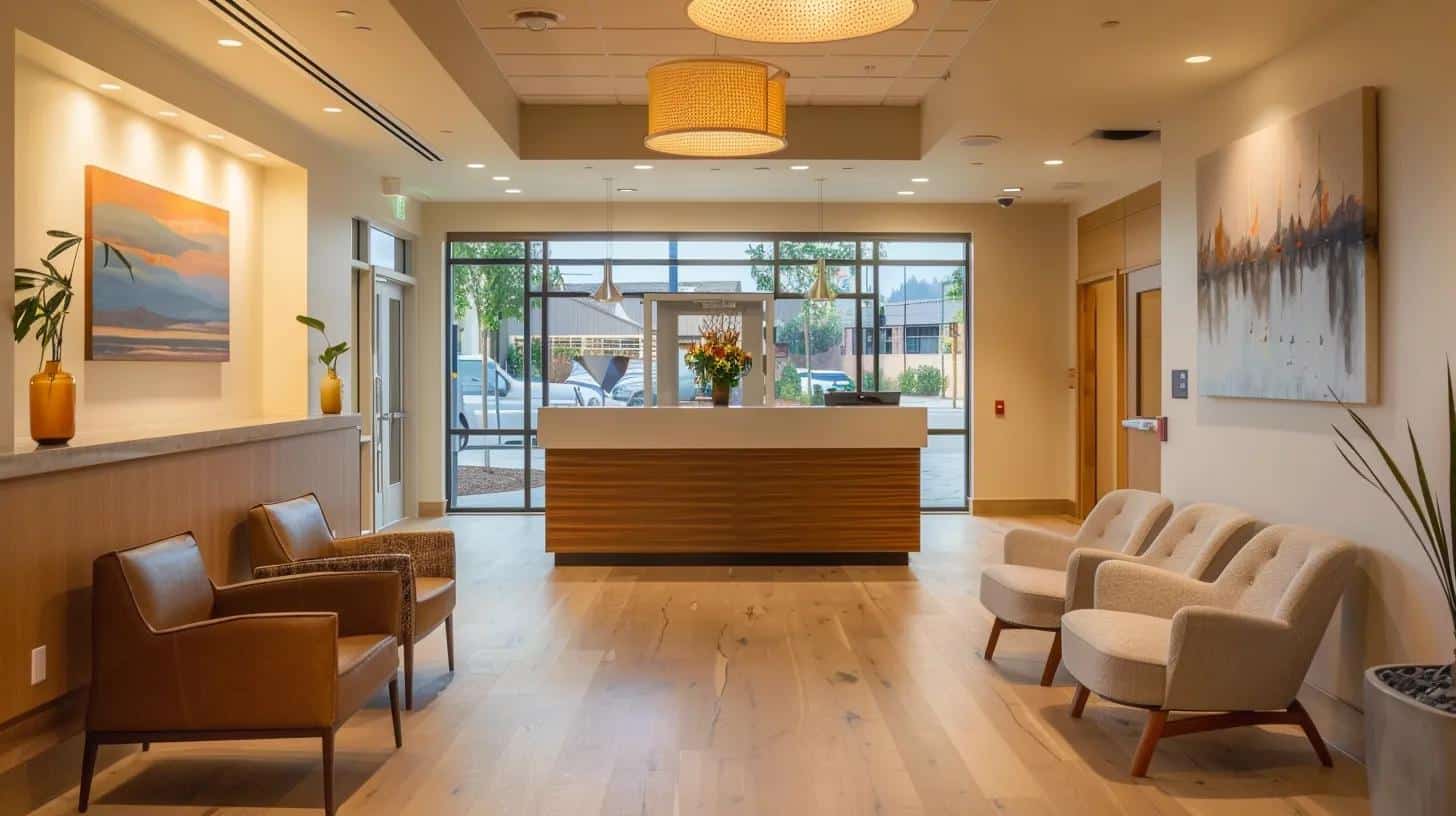
A smooth transition to a new care home requires careful coordination. Planning ahead helps minimize disruption and eases the emotional and logistical challenges of moving.
Create a Detailed Moving Schedule
Develop a timeline that outlines each phase of the move, including packing, hiring movers, and coordinating arrival times with the care home. A clear schedule helps reduce stress and keeps everyone informed.
Plan for Sorting and Organizing Personal Items
Decide which personal items to keep, donate, or discard. Involving the senior in this process respects their attachments while allowing for an organized move. A systematic approach ensures cherished belongings are preserved.
Coordinate Logistics With the Chosen Senior Care Home
Establish communication with the new facility regarding logistics such as arrival times, storage options, and any special needs. Facilities may recommend trusted moving companies experienced with senior transitions.
Arrange Transportation for the Day of the Move
Ensure safe and comfortable transportation for the senior on moving day. Whether using professional services or a family convoy, prioritize the senior’s comfort and safety in every aspect of the move.
Support Emotional Well-Being During the Adjustment Period
Transitions can be emotionally challenging. Families should offer continuous emotional support, keep familiar items nearby, and maintain regular visitation schedules to help the senior adjust and feel at home.
Address Legal Aspects of Senior Care Home Agreements
Legal matters are a critical part of moving into a senior care home. Reviewing contracts and formalizing legal documents helps protect the interests of both the senior and the family.
Review Admission Paperwork With Professional Counsel
Have all admission paperwork reviewed by a legal professional experienced in elder care contract law. This ensures clarity regarding fees, cancellation policies, and the scope of provided care, reducing the likelihood of disputes.
Understand Resident Rights Within Senior Living Facilities
Familiarize yourself with the rights of residents, including privacy, autonomy, and safe living conditions. Ensure the facility adheres to local and federal regulations, empowering families to advocate for high-quality care.
Establish Necessary Powers of Attorney and Healthcare Proxies
Set up durable power of attorney and healthcare proxy documents before moving. These legal instruments ensure that a trusted individual can make necessary decisions if the senior becomes unable to do so, protecting both financial and health interests.
Clarify Complaint Resolution Processes at the Senior Care Home
Ensure the facility has clear procedures for handling complaints. Knowing who to contact and the expected timelines for resolution provides reassurance and a framework for addressing any issues that may arise.
Obtain Support Throughout Your Senior Living Search
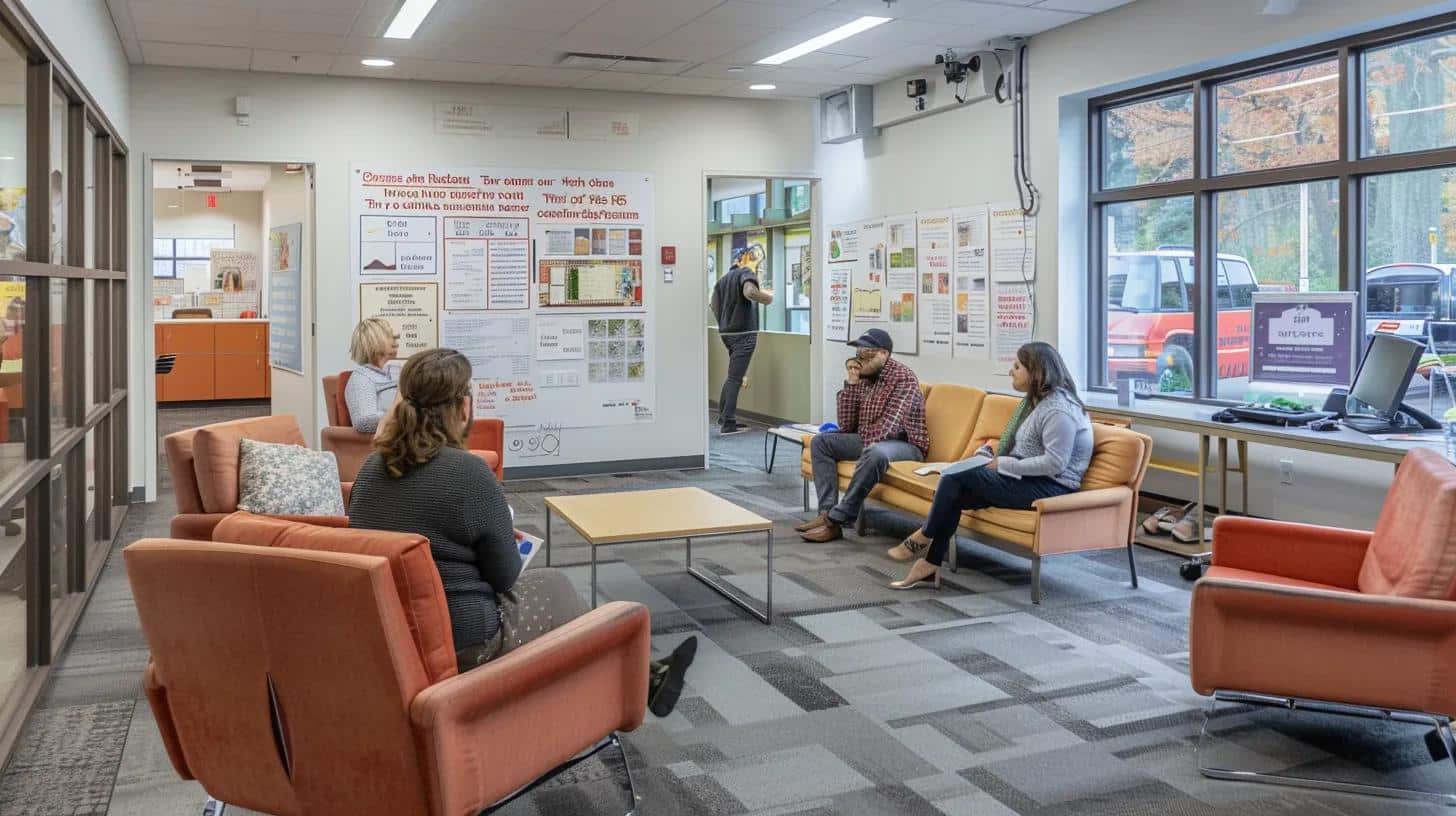
The process of finding the right senior care home benefits from a network of professional and community support. Utilizing these resources can streamline the search and decision-making process.
Engage With Senior Placement Specialists for Help
Senior placement specialists can match your senior’s unique needs with the right facility. Their detailed knowledge of local options can significantly reduce the time and stress of the search.
Join Support Networks for Caregivers and Relatives
Local or online support networks provide valuable advice and shared experiences from other caregivers. Connecting with these groups can offer practical insights and emotional support during the decision-making process.
Use Online Communities to Gather Experiences
Participate in online forums and review platforms dedicated to senior care homes. These communities offer firsthand experiences and nuanced comparisons that can further guide your decision.
Rely on Relatives and Friends for Emotional Backing
Family members and friends who have experienced similar transitions can offer support and practical advice. Their insights may help in assessing options from a personal perspective.
Consult Financial Planners for Future Arrangements
Given the financial commitments involved, consulting a financial planner specializing in elder care can help create a long-term financial strategy. This ensures that the chosen care home is sustainable and fits within your family’s budget.
Final Thoughts
Selecting the right senior care home is complex, involving careful consideration of current and future needs, thorough comparisons, and proactive planning. Defining your ideal living arrangement, exploring regional options, conducting detailed visits, and addressing legal and financial considerations all contribute to making an informed decision. By leveraging professional advice, community insights, and personal observations, families can choose a home that offers a safe, compassionate, and supportive environment for their loved ones.
Frequently Asked Questions
Q: How do I start defining the best senior living arrangement for my parent? A: Begin by assessing current and future care requirements, including daily assistance needs and potential cognitive changes. Evaluate medication, social, and lifestyle needs to tailor the search to facilities that match your parent’s unique requirements.
Q: What services should I look for in an assisted living facility? A: Look for support with activities such as bathing, dressing, and medication management, as well as amenities like dining, recreational activities, and transportation services. A high caregiver-to-resident ratio and strong safety protocols are also important.
Q: How can I verify the quality of a senior care home before making a decision? A: Verify quality by touring the facility, reviewing licensing and inspection reports, and reading testimonials from current residents and their families. Consulting healthcare providers and senior placement specialists can also provide valuable insights.
Q: What financial options are available to help cover the cost of senior living? A: Consider long-term care insurance, Medicare/Medicaid benefits, and veterans’ assistance programs. A financial planner specializing in elder care can help structure a sustainable financial plan.
Q: Why is a second visit to a senior care home important? A: A second visit allows you to reassess the environment at different times of day, confirm initial impressions, and address any unresolved questions regarding daily routines and care quality.
Q: How do memory care units differ from standard assisted living facilities? A: Memory care units are specifically designed for seniors with dementia or Alzheimer’s. They offer structured routines, enhanced safety measures, and targeted therapeutic programs with a higher staff-to-resident ratio to support cognitive function.
Q: How can I involve my parent in the decision-making process for senior care selection? A: Include your parent by arranging facility tours, encouraging interaction with staff and residents, and discussing their personal preferences. Their involvement ensures they feel comfortable and valued, leading to a smoother transition.
